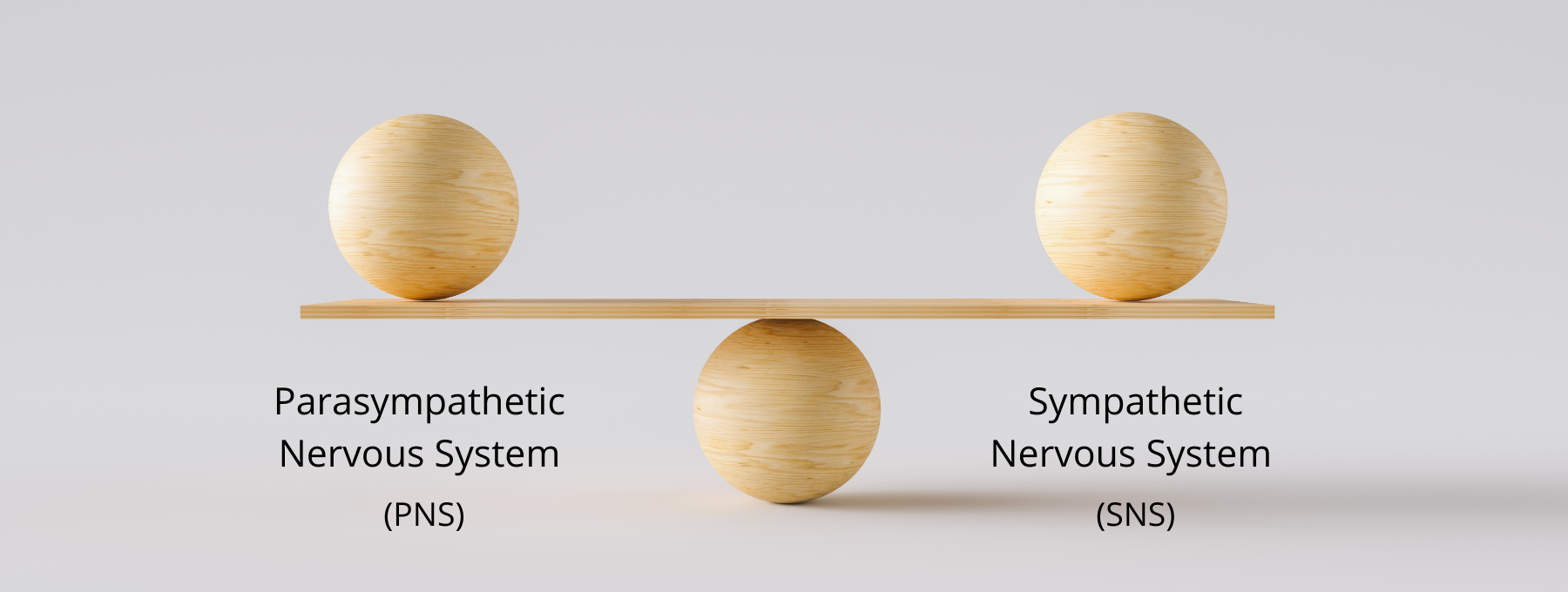Autonomic Dysfunction
People with ME/CFS experience a range of symptoms associated with dysfunction of the autonomic nervous system, also known as 'dysautonomia'.

Autonomic dysfunction can be seriously disabling.
ME/CFS: A Primer for Clinical Practitioners, IACFS/ME, 2014
The autonomic nervous system (ANS) is composed of three distinct parts which control the involuntary functions of the body, such as heart rate and blood pressure, gastro-intestinal motility, fluid and electrolyte balance, and body temperature.
- The sympathetic nervous system (SNS) helps control the reaction of the body to stress (the fight-flight-freeze-shutdown response).
- The parasympathetic nervous system (PNS) conserves the body's resources and restores equilibrium (the rest and digest response).
- The enteric system controls the function of the gut.
Problems occur when the balance between these different parts of the ANS is dysfunctional.
Symptoms of Autonomic Dysfunction
Dysautonomia can affect all the automatic functions of the body. The list below is limited to those symptoms that most commonly cause difficulties in the daily lives of people with ME/CFS:
- inability to stand, sit up, or maintain an upright position (orthostatic intolerance)
- dizziness or light headedness, fainting or near fainting (syncope)
- headache (a sense of intracranial pressure)
- weakness
- palpitations, with or without cardiac arrhythmias
- shortness of breath, respiratory irregularities, air hunger
- chest discomfort or pain, including costochondritis with localised tenderness
- abdominal pain, nausea, irritable bowel syndrome (IBS)
- impaired bladder control, urinary frequency
- abnormal temperature regulation, flushing, sweating, cold extremities
- visual disturbances, including blurred vision
- cognitive impairment
- difficulty swallowing (dysphagia)
- visible and internal tremors
- sexual dysfunction
Management
Careful management of rest and activity, known as pacing, will reduce the risk of exacerbating autonomic symptoms. Exceeding the available energy will lead to post-exertional malaise (PEM). The impact of PEM may be delayed and recovery prolonged.
In the short term, there are two main strategies that may moderate the severity of autonomic dysfunction symptoms:
- lying down
- shifting autonomic function from the sympathetic nervous system (SNS) to the parasympathetic nervous system (PNS) by using:
- transcutaneous vagus nerve stimulation (tVNS)
- meditative and breathing practices
Other strategies include:
- identifying better and worse times of day and planning the day accordingly
- remaining hydrated: avoid diuretic drinks; consider electrolytes drinks; add salt to diet if indicated
- maintaining stable room temperature
- moderating eating patterns, as eating may exacerbate symptoms
- limiting alcohol, as it may be poorly tolerated
Treatment
Some symptoms of autonomic dysfunction may respond to medication.
Introduce one change at a time so the impact can be monitored.
As ME/CFS is a fluctuating illness, periods of improvement or worsening health should be anticipated. Changes in the short term may not reflect a response to treatment.
Medication
Start with a low dose of medications, since the usual doses are often poorly tolerated.
Last edited: 16 December, 2021
